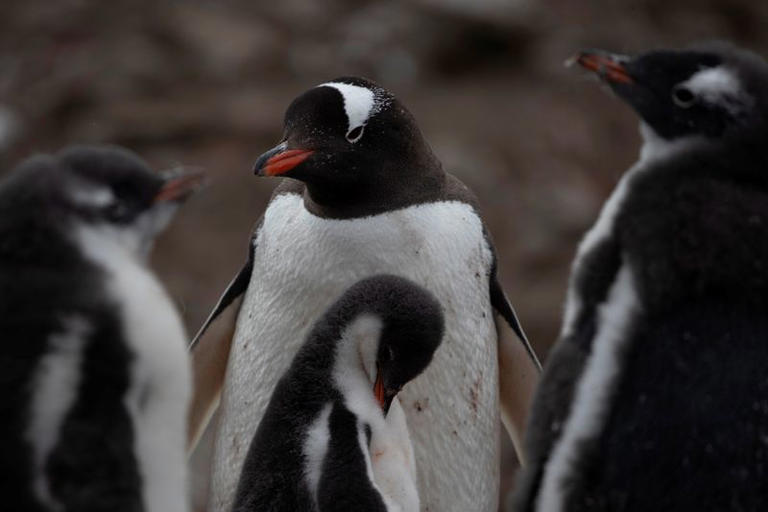In a concerning development, scientists have confirmed the presence of a deadly strain of bird flu on the mainland of Antarctica for the first time. The discovery poses a significant risk to the region’s vast penguin colonies, raising fears about the potential impact on the delicate Antarctic ecosystem.
According to Spain’s Higher Council for Scientific Investigation CSIC, the Highly Pathogenic Avian Influenza virus was detected on Saturday in samples collected from dead skua seabirds near the Antarctic base Primavera. This confirmation marks the first instance of the virus reaching Antarctica, despite the geographical isolation and natural barriers that separate the continent from others.
The presence of the virus on the Antarctic peninsula underscores the vulnerability of the region’s wildlife, particularly its extensive penguin populations. The risk to these colonies is further emphasized by previous cases of the virus on nearby islands, where outbreaks among gentoo penguins have already occurred.
The H5N1 avian flu strain, known for its high mortality rate among birds, has wreaked havoc on bird populations worldwide in recent months. Now, with its arrival in Antarctica, concerns are mounting about the potential devastation it could inflict on the continent’s delicate ecosystem.
The implications of the virus’s presence extend beyond the immediate threat to penguin colonies. As a key indicator species, penguins play a crucial role in Antarctic ecosystems, serving as both prey and predator. Any disruption to their populations could have far-reaching consequences for the entire ecosystem.
Scientists and researchers are closely monitoring the situation, working to assess the extent of the virus’s spread and develop strategies to mitigate its impact. Efforts to protect vulnerable species and prevent further transmission of the virus are paramount in safeguarding the fragile Antarctic environment.
As the world grapples with the ongoing challenges posed by the COVID-19 pandemic, the emergence of avian flu in Antarctica serves as a stark reminder of the interconnectedness of global health and environmental issues. Addressing these threats requires international collaboration and concerted action to protect the planet’s biodiversity and ensure the preservation of Antarctica’s unique ecosystems for future generations.
